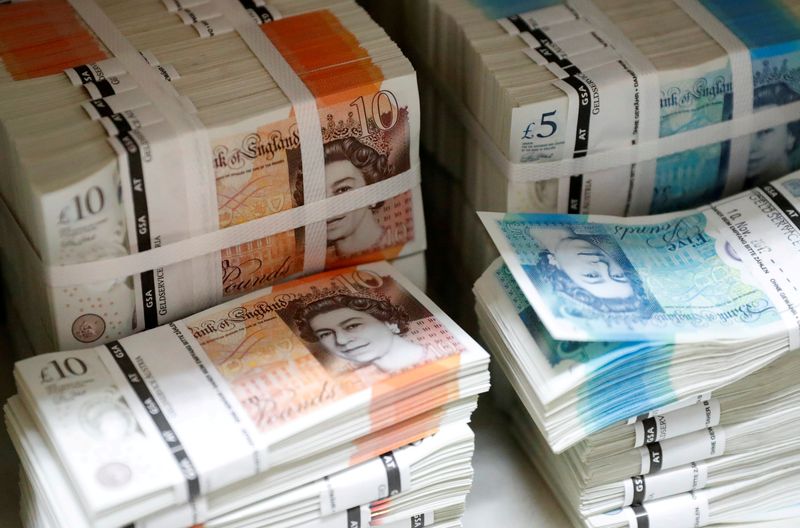By Harry Robertson
LONDON (Reuters) - The pound hit a 10-month high versus the euro on Monday as investors waited for British inflation data and a Bank of England decision later in the week.
Against sterling, the euro fell to 85.20 pence, the lowest since August 2022. It was last down less than 0.1% at 85.25 pence.
The pound was down 0.13% against the dollar at $1.281, not far below the 14-month high of $1.285 touched on Friday.
Sterling has rallied against both major currency pairs over recent weeks as economic data has suggested inflation is far more stubborn in Britain than in the United States or Europe.
The data has caused traders to factor in more rate hikes from the Bank of England, pushing up yields on British government bonds, boosting the pound.
The UK two-year government bond yield rose to 5.012% on Monday, breaching the 5% level for the first time since 2008. Yields rise as prices fall.
Goldman Sachs (NYSE:GS) said that, according to its trade-weighted measure of sterling, the pound is at its highest since mid-2016, just after the Brexit referendum.
"Potentially there is more room to go," said Pushkar Jha, head of UK inflation trading at Goldman, in a note to clients.
"If the market continues to believe that the central bank will deliver on its mandate of achieving 2% CPI (consumer price index inflation) by its forecast horizon, then there is no reason why GBP can't continue being supported."
Bank of America (NYSE:BAC) and Barclays (LON:BARC) have both backed sterling to keep rising against the dollar, at least in the short term.
The latest British inflation data is due out on Wednesday. Economists expect headline CPI to have cooled slightly to 8.5% year-on-year, from 8.7% in April. Yet they expect core CPI - which strips out volatile food and energy costs - to have held steady at 6.8%.
The Bank of England then sets interest rates on Thursday, with investors and economists expecting officials to hike by 25 basis points to 4.75%.
According to pricing in derivatives markets, traders expect rates to peak at around 5.8% in early 2024 as the BoE battles inflation.

Despite the short-term optimism of some investors, the longer-term path for sterling could be clouded by Britain's economic worries.
Consultancy Pantheon Macroeconomics said over the weekend that the BoE "is approaching levels of Bank Rate which could prove to be a tipping point for (corporate) defaults, which might undermine financial stability".